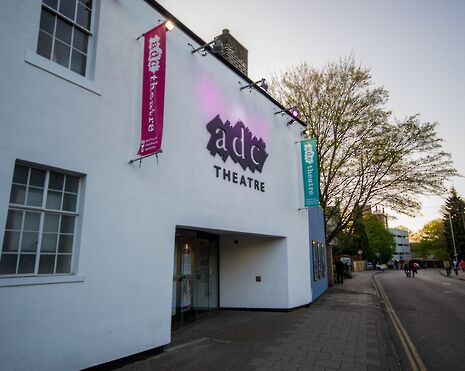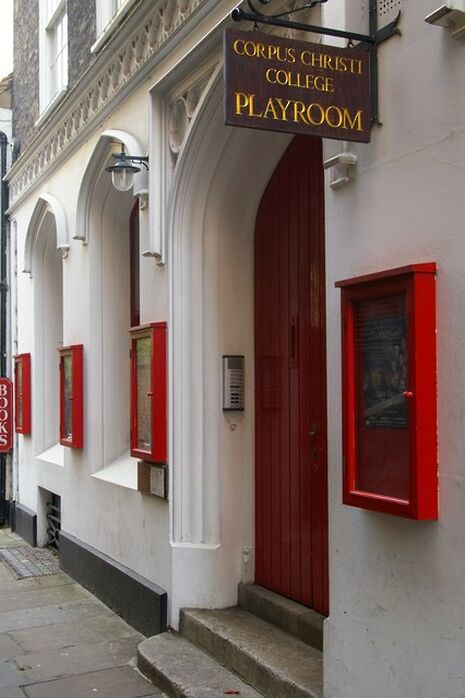Anonymity enables honest reviewing in the tight-knit world of Cambridge theatre
Theatre co-editor Iris Pearson responds to recent criticism of Varsity’s anonymous reviewing system

In January 2018, Varsity announced a new anonymous reviewing system. In August 2018, The Cambridge Student (TCS) published an eloquent article by Gabriel Humphreys in defence of anonymous reviewing. As a Varsity theatre editor this term, I was intrigued. Humphreys argues that anonymity has become at best an impersonal disruption to the balance between artist and critic which is so fundamental to theatre, but at worst enables the airing of personal grudges and best-friend praising.
Although I was not a part of the team that implemented the anonymous reviewing system, I stand by its benefits. As Humphreys acknowledges, the point of a review is to provide analysis, constructive criticism, and intellectual critique. To this end, reviewing demands honesty – an honesty that anonymity gives reviewers by freeing them of the fear that, in the closely-connected world of Cambridge theatre, they will upset someone they know.
“The best aspect of Humphreys’s article is the reminder to editors to redouble their vigilance and hold reviewers to account”
Anonymity, of course, does not come without dangers. The system relies on reviewers having integrity, substantiating their praises and criticisms, and not using the review to personal ends, be these positive or negative. It cannot be for praising your best friends or bashing your enemies. It cannot become a way of saying things you would be too afraid to say openly and under your own name. In short, it cannot become a form of intellectual trolling. But the anxiety that a negative review would be the result of petty bitterness from a cast-reject becomes redundant with the intervention of an energetic editor.
If a review is obviously unfair – that is, if it is destructive or unsupported bile – it will not pass. There is a clear difference between constructive critique and unfounded attack, and editors are appointed to separate one from the other. ‘Juliet was played unconvincingly, as her character was not developed sufficiently from the opening scenes, and so by the climax I was not invested in her struggle’ seems to be a reasonable, constructive comment, as does ‘the lighting seemed at times a little melodramatic, and the effect could have been drastically improved if the lighting changes were more gradual’; ‘the part of Juliet was poorly acted’ or ‘the lighting didn’t work’ does not.

There should always be something concrete that the cast and crew can take away from the review and consider for next time; there should not be a sense that their show is simply beyond saving. The best aspect of Humphreys’ article is the reminder to editors to redouble their vigilance and hold reviewers to account.
Moreover, the system has been working effectively. A review of the archives of the past two terms shows that a spike in negative reviews has not occurred. In fact, quite the opposite is true. Of 84 reviews published between January and August 2018, only five were given fewer than 3 stars, and none fewer than 2.
Reading the reviews in more detail, I think it is safe to say that while the reviewers were not afraid to criticise aspects of the shows, in each case there was an obvious effort made to point out positive features as well as negatives: to draw attention to particularly sensitive acting, moments of hilarity or beauty, to talk about potential that was restricted by the script, or to suggest changes to set and costume that would have made the show fly. I think this demonstrates that editors, at least, are diligent. Ultimately, every review should contain enough that the reader should want to go and see the show for themselves, and each of these reviews has certainly balanced this with nuanced and intellectual analysis. The editors have been doing their jobs, then, and are so important to the process that perhaps putting their names at the bottom of anonymous reviews should be considered.
I would suggest, too, that a certain responsibility falls to the readers; by which I don’t mean, of course, that the reader has to have a comprehensive understanding of the play to read between the lines of an anonymous review, but that they have a choice to make after reading it. One could read a second review in TCS, talk to others who have been to see the show and listen to their opinions, or, most informatively, they could go and see the show and make up their own mind. The individual reviewer, be they a named individual or an anonymous reviewer for Varsity, is not the only voice we can hear.
Anonymous reviewing does carry potential risks. It relies on the integrity and sensitivity of both reviewer and editor alike to maintain a constructive tone which does not veer into unsupported bile. Yet evidence from a two-term trial of this system suggests that it has largely avoided the pitfalls discussed by Humphreys, and that anonymity in fact improves the quality of reviews by allowing reviewers to be more discerning and honestly critical.
 Features / Are you more yourself at Cambridge or away from it? 27 January 2026
Features / Are you more yourself at Cambridge or away from it? 27 January 2026 News / Vigil held for tenth anniversary of PhD student’s death28 January 2026
News / Vigil held for tenth anniversary of PhD student’s death28 January 2026 Interviews / Lord Leggatt on becoming a Supreme Court Justice21 January 2026
Interviews / Lord Leggatt on becoming a Supreme Court Justice21 January 2026 News / Reform candidate retracts claim of being Cambridge alum 26 January 2026
News / Reform candidate retracts claim of being Cambridge alum 26 January 2026 Comment / How Cambridge Made Me Lose My Faith26 January 2026
Comment / How Cambridge Made Me Lose My Faith26 January 2026










